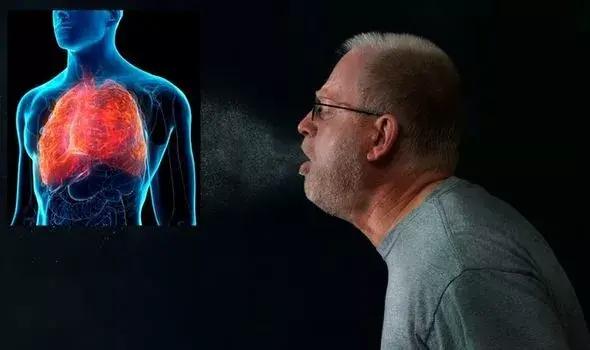When we’re feeling under the weather with a chest infection, one of the first questions that comes to mind is, “How long can a chest infection last untreated?” It’s a valid concern, as these infections can be quite uncomfortable and disruptive to our daily lives. We know that chest infections, which include conditions like pneumonia and bronchitis, can cause a range of symptoms in adults, from persistent coughing to difficulty breathing. Let’s take a look at how long these chest conditions can last.
Understanding chest infections
We know chest infections as infections of the lungs or large airways. They can range from mild to severe, with some clearing up on their own while others can be life-threatening. The two main types of chest infections are bronchitis and pneumonia. Bronchitis usually stems from viruses, while bacteria are often behind pneumonia cases. These infections spread when an infected person coughs or sneezes. It’s worth noting that certain groups have a higher risk of developing serious chest infections. For instance, excessive alcohol use can weaken our lungs’ natural defences, making us more vulnerable. If we’re at increased risk, our GP might suggest getting vaccinated against flu and pneumococcal infections to help prevent chest infections.
How long does an untreated chest infection last?
We know that how long a chest infection lasts untreated can vary depending on several factors. Most mild chest infections, including bronchitis, typically clear up on their own within 7 to 10 days. However, some symptoms of a chest infection like coughing, might persist for up to three weeks. For pneumonia, the recovery timeline can be longer, ranging from a few weeks to several months. It’s important to note that while many chest infections resolve without medical intervention, leaving them untreated can lead to more serious complications. Bacterial infections, such as some forms of pneumonia, may require antibiotics for effective treatment. If symptoms worsen or persist beyond the expected duration, it’s important to seek medical attention.
Symptoms of chest Infections
We know that chest infections can present with various symptoms:
- A persistent, chesty cough, which may produce yellow or green phlegm
- Shortness of breath, wheezing, and chest pain when breathing
- High temperature
- Rapid heartbeat
- Fatigue and tiredness
- Loss of appetite
As the infection progresses untreated, symptoms can worsen. We may notice increased difficulty breathing, confusion, or a bluish tint to our skin or lips. In some cases, particularly with pneumonia, symptoms can develop suddenly and become severe. It’s crucial to monitor how long a chest infection lasts untreated, as prolonged symptoms could indicate a need for medical intervention. If we’re unsure whether we need antibiotics for a chest infection, it’s best to consult a healthcare professional.
Risk factors
Certain factors can increase your risk of getting a chest infection or make you more susceptible to its contagious nature. These include:
- Age: Very young children and older adults are at higher risk
- Weakened immune system: This can be due to health conditions like HIV/AIDS or medications that suppress the immune system
- Chronic lung diseases: Conditions like COPD (Chronic Obstructive Pulmonary Disease), asthma, or cystic fibrosis increase your risk
- Living in crowded places: This includes schools, nursing homes, or military barracks
- Smoking: This can weaken your ability to clear mucus from your airways
Treatment options
Treatment for a chest infection depends on its cause. For viral infections, including some types of pneumonia, treatment focuses on managing symptoms and allowing the body to fight off the virus. This may include:
- Plenty of rest and hydration
- Over-the-counter pain relievers such as ibuprofen and paracetamol
- Cough medicine (if needed)
Prevention
- We can take several steps to prevent chest infections and treat them effectively:
- Maintaining good hygiene practices and avoiding close contact with individuals with chest infections
- Cover our mouth and nose when coughing or sneezing, preferably using disposable tissue to reduce the risk of spreading viruses and bacterial infections. It’s essential to dispose of used tissues immediately and wash our hands thoroughly afterwards
- Regular hand washing with soap and water for at least 20 seconds is vital, especially after coughing, sneezing, or being in public spaces
- Taking the annual flu vaccine, particularly for those at higher risk, such as the elderly and people with chronic conditions
- The pneumococcal vaccine is also available to protect against one of the most common types of bacterial pneumonia. It’s typically given every five years to vulnerable groups
- Lifestyle changes e.g. stop smoking, balanced nutritious diet and regular physical activity
- When to seek medical attention
We need to be vigilant about our health when dealing with chest infections. If our symptoms persist for more than three weeks or worsen, it’s time to see a doctor. This is especially important if we’re experiencing severe breathlessness, chest pain, or coughing up blood. We should also seek immediate medical attention if we notice a bluish tint to our skin or lips, which could indicate a lack of oxygen. Those of us who are pregnant, over 65, and have long-term health conditions or weakened immune systems, should seek medical help sooner rather than later. Remember, untreated chest infections like pneumonia can become serious quickly. If we’re unsure, it’s always better to err on the side of caution and consult a healthcare professional.
Conclusion
Understanding chest infections and how long they last is useful for managing our health effectively. We’ve learned that most mild cases clear up on their own within 7 to 10 days, though some symptoms might hang around for up to three weeks. However, more severe infections like pneumonia can take much longer to resolve, potentially lasting several months. This knowledge helps us to decide when to seek medical help and when we can safely manage symptoms at home.
Sources
- Chest infection – Nidirect
- Chest infection-| NHS inform
- Bronchitis – NHS
- Chest infections and asthma – Asthma – Lung UK
Medical Disclaimer
NowPatient has taken all reasonable steps to ensure that all material is factually accurate, complete, and current. However, the knowledge and experience of a qualified healthcare professional should always be sought after instead of using the information on this page. Before taking any drug, you should always speak to your doctor or another qualified healthcare provider.
The information provided here about medications is subject to change and is not meant to include all uses, precautions, warnings, directions, drug interactions, allergic reactions, or negative effects. The absence of warnings or other information for a particular medication does not imply that the medication or medication combination is appropriate for all patients or for all possible purposes.









